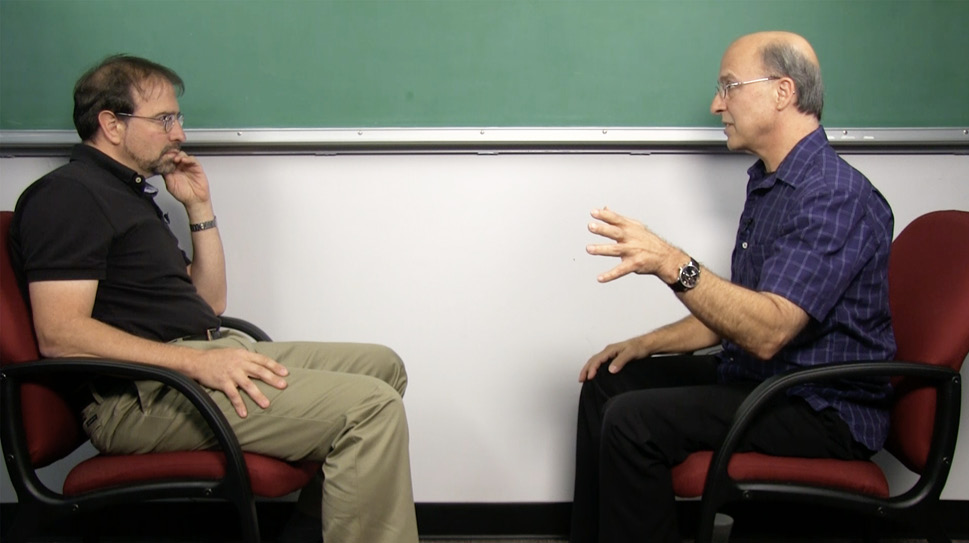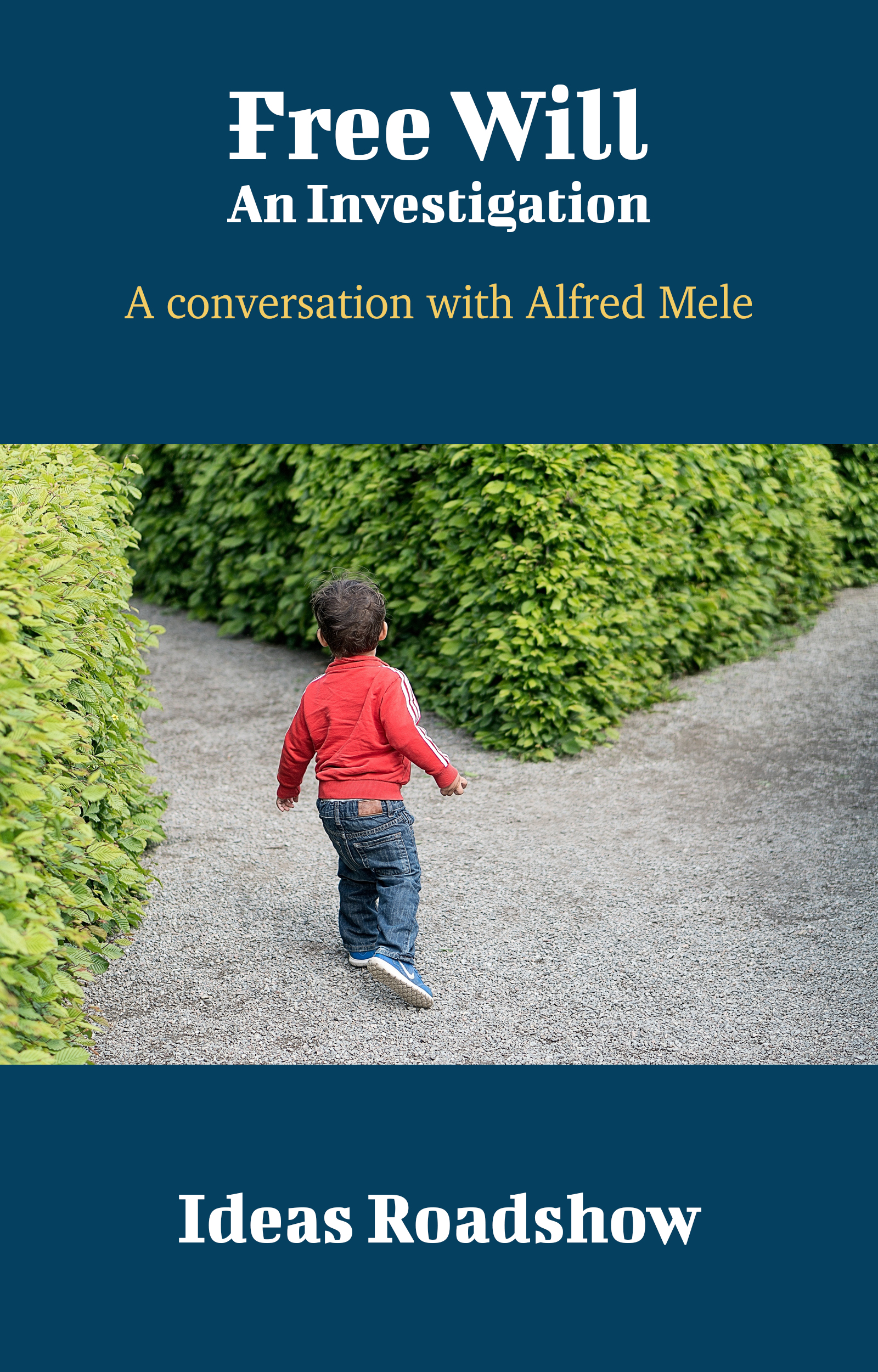The contents of this book are based upon a filmed conversation between Howard Burton and Alfred Mele in Tallahassee, Florida, on November 1, 2014.
Introduction
Down to Earth
The notion of free will has a long and turbulent history over the past few millennia, directly impinging on such flashpoint issues as divine oversight and individual moral responsibility. It played a lively philosophical role during the Reformation and Counter-Reformation, as some believed that the predestination inherent in most strands of Protestantism skirted precipitously close to a denial of free willmore than enough, indeed, for its attackers to keenly leap to that conclusion and its defenders forced to vigorously mount the intellectual barricades to deny it.
But by the time Isaac Newton had resoundingly demonstrated universal laws to conclusively link terrestrial and celestial mechanics over a century and a half later, the philosophical ground had shifted considerably: suddenly, there were those who speculated if God himself might be constrained by such a comprehensively deterministic system. After all, people wondered, once the clockwork universe had been set in motion, what real wiggle room did even He have?
These days, of course, the ground has shifted yet again, with free willlong consigned to the domain of university philosophy departments as a dusty, irresolvable piece of metaphysics roughly equivalent to speculating on how many angels can fit on the head of a pinsuddenly emerging as an issue of keen interest, if not active debate, among a general public fascinated by rapid advances in neuroscience. Which certainly stands to reason: as brain imaging technology improves, it becomes less and less of a stretch that we might, somehow, begin to meaningfully measure our actual thought processes and finally get a firm handle on whether or not our intuitive convictions of free will are actually fact or fiction.
Into this re-energized landscape steps Alfred Mele, the William H. and Lucyle T. Werkmeister Professor of Philosophy at Florida State University and a highly engaged member of the free will renaissance, authoring a spectrum of books such as Autonomous Agents; Free Will and Luck; A Dialogue on Free Will and Science; Free: Why Science Hasnt Disproved Free Will; Aspects of Agency: Decisions, Abilities, Explanations, and Free Will and Manipulated Agents: A Window to Moral Responsibility.
For Alfred, logically enough, the first thing that must be done to successfully wade into these exciting new waters is to take the time to identify what were actually talking about. And so, in his own charmingly accessible way, he outlines three currently in vogue positions on what it means to have free will at all, invoking a gasoline model by referring to them as regular, mid-grade and premium.
For those who choose regular, a sufficient condition for having free will is that youre sane, rational, well-informed and autonomous. You make a decision on the basis of the information, a rational decision, and nobodys coercing you or compelling you. Theres no gun to your head. That is enough for the decision to be free, according to this regular view of free will.
But then, you see, this is where we get to what I call deep openness. Somebody might think, Yeah, but thats not enough, because it could be that really that was the only decision you could have made, given the laws of nature and the initial conditions of the universe.
And there are those who want to add that into their definitionI call that the ambitious or mid-grade level of free willthat this needs to be taken explicitly into account. In other words, if it can be deduced that the laws of nature have determined your behaviour than you dont have free will. According to the regular definition, the laws of nature arent considered. All that matters there is if you are rational and not coerced and then you have free will.
Now the third one, the spiritual one, adds something even more to all this: that theres a soul at work somehow.
I should say that these arent just abstract characterizationsthere are many people who genuinely believe this. Ive done some research on it and others have toocontrolled researchand it looks like maybe 25% of the people in the Southeastern US think that free will requires souls. But thats only 25% of people and its just the Southeast US.
So most people are in the other two groups.
The fact that Alfred eschews just abstract characterizations turns out to be a highly revealing aspect of his approach. Not content to merely sit in his office and ruminate, he is strongly motivated to develop his arguments by regular appeals to empirical understanding, leading him to consistently weave data from neuroscience, social psychology and public opinion polls into his reasoning process.
Given all of that, it is hardly surprising that for Alfred, a key concern is how current and future insights might be directly applied to improve our world.
One thing Id like to know is, How much would educating people about the existence of these effects influence their future behaviour?
I give a lot of talks to undergrads these days, and Ill often speak about situationism. And at the end, I ask them what they think theyll do the next time theyre in a crowded mall and they see a young kid crying and looking lost or watch an old person fall. And I tell them that, on average, what the effect predicts is that theyll just walk away like everyone else. But the key questions are, What will you do? and What should you do?
And I think that, itself, can make a difference. But this is just my intuition. If we did a study like this, or several studies like this, then wed have good evidence about it.
Intuition is good. But evidence is better. Even for philosophers.
The Conversation

I. Becoming A Philosopher
From Aristotle to Irrationality
HB: So, philosophy for you: was it something that you were interested in for a long time? Would you describe yourself as a particularly philosophical child, say? Im not so much asking you if your philosophical career was somehow predeterminedwere going to get there soon enough, I suspectbut more generally assessing your early interests and tracing your trajectory into the field.









